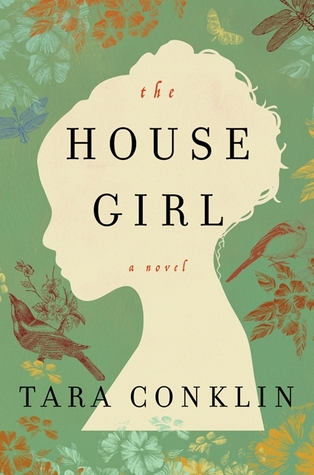 You'd think that with all the historical stories out there about the evils of slavery, about slaves trying to be free, of the plight of the early African Americans, you'd think you'd read it all by now. What could one more author add to it?
You'd think that with all the historical stories out there about the evils of slavery, about slaves trying to be free, of the plight of the early African Americans, you'd think you'd read it all by now. What could one more author add to it?A lot.
This one touched me in a way that many others haven't. Looking back now that I've turned the last page, I am trying to pinpoint what it exactly what it was that really hit me hard, and I'm not sure. Josephine...has lived a live of heartache. She's an item, slapped when the "master" feels like slapping her, used sexually on another's whim, not given a choice or say in anything. The one joy in her life, art, is even stolen from her by her "mistress" who despite her claims to be sorry, stands there and takes credit for the paintings and drawings done by her slave, Josephine. And this continues long after her death.
The story doesn't reveal a whole lot about her, really, even though we follow her at times. Some of Josephine's tale is told by others, people who didn't even know her, yet her story kept continuing in my mind long after I turned the Kindle off. I cried for her. I so badly wanted her to find joy, but the story ends realistically. It doesn't throw a tied up with a bow happy ending at us. It's life. Somehow the ending the author chose resonated with me even more.
The tale goes back and forth btw modern day Lina and the slave Josephine, with added bits of letters and journals from an underground railroad helper and a doctor. Through all these narratives, we slowly piece whether or not Josephine escaped, whether she was the true artist behind the famous masterpieces, whether she had any descendants who can now claim them.
The present day story revolves around Lina, a lawyer on a reparations case, her artist father, her dead mother. Truthfully, I didn't see why the deal with her mother was in the book. I kept wondering if it was going to turn out that Lina herself was a descendant of Josephine or something. I was left feeling unsatisfied with this line. Why was it here? What was significant about her mother and her artist father's stuff? Something...slipped by me. I wasn't interested at all in that and as the book ended, I was wondering why it was there.
In the end though, I cried, and the characters are still in my mind, like I've known them, each one of them, personally. That's a sign of solid writing, of incredible talent. This book doesn't sugarcoat the slavery issue. It brings what happened into a glaring perspective. Even the ones working on the reparations case in the end...it was eye opening.. "You're too white." I was just thrown for a loop, and yet, that's how people are.
Four bikes. I received a digital galley of this from the publisher.

No comments:
Post a Comment